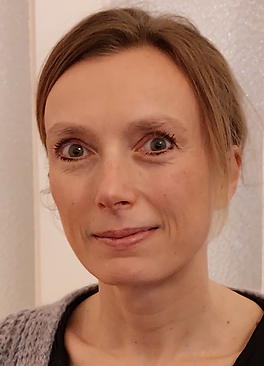Suessmilch Lecture
The Evolution of the Earnings Gap Within Couples Over Time
Martina Dieckhoff
Online Presentation, January 25, 2022
As part of the Suessmilch Lecture series, Martina Dieckhoff from the University of Rostock gave a talk about earnings gap within couples.
Abstract
Research focusing on heterosexual couples shows that women earn substantially less than their male partners and that these within-couple inequalities negatively impact women’s labor market outcomes (e.g. Bröckel et al. 2015; Shafer 2011). Economic inequalities within couples are not only the result of existing gender inequalities in the labour market, they also further exacerbate these inequalities.
In this lecture Martina Dieckhoff draws on two papers, which deal with economic inequalities in heterosexual couples (both in co-authorship with Vanessa Gash, Antje Mertens and Laura Romeu-Gordo). In the first paper the researchers compare how inequalities within dual earner couples have evolved over time in Germany drawing on SOEP data (1996-2016) which they analyze as repeated cross-sections. In these analyses they also pay specific attention to differences in East- and West-Germany as well as between different income groups. The researchers find hardly any evidence pointing to decreasing inequalities over time.
The second paper then takes a life-course perspective and focuses on temporal development at the individual-level. Here, the researchers investigate how economic inequalities evolve with cohabitation duration for heterosexual couples based on SOEP data (1998-2018). Special focus is on differences by education and cohorts. Amongst the most central findings are that neither the degree of earnings inequalities nor their evolution with relationship duration differ strongly between cohorts. Unsurprisingly, the income gap grows with the arrival of the first child. It is striking though that in educationally homogamous couples this increased gap is maintained throughout the relationship, in couples where she has lower education than her partner the gap keeps growing and only in couples where she is more highly educated “recovery-effects” are observed.
About the Speaker

© Martina Dieckhoff
Martina Dieckhoff is professor of Social Structure Analysis at the University of Rostock. She holds a doctoral degree in Sociology from Nuffield College, University of Oxford. Before coming to Rostock, she was professor for Social Science Research Methods at the Europa-Universität Flensburg. Prior to this, Martina was a senior researcher at the WZB Berlin Social Science Center. She also held visitorships and fellowships at Nuffield College, the Danish Center for Social Science Research, the European University Institute and at the Center for European Studies at Harvard University. Martina’s research interests focus is on the cross-national comparative analysis of social inequality and stratification. Specifically, her work falls into two main areas: (1) the implications of unemployment and atypical work for individuals’ careers, lives and families; (2) economic inequalities within heterosexual couples.